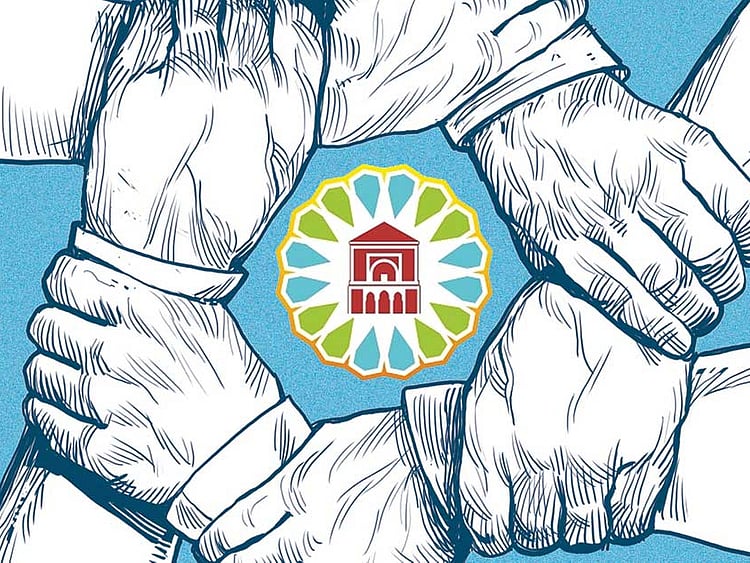Marrakech climate talks hold key to the future
GCC countries have an important role to play in ensuring that the forthcoming Cop 22 summit marks the first positive turning point towards the implementation of the Paris Agreement

Although the Gulf Cooperation Council (GCC) as a bloc is one of the biggest oil producers and exporters globally, the region accounts for less than 2 per cent of total global emissions. However, climate change will have severe negative environmental impacts on the region in terms of increased heat waves, resulting in additional need for power for air-conditioning and cooling purposes. Also, water scarcity and salinification of soil and coastal groundwater aquifers, as a result of the rise in sea levels, will affect agriculture, tourism, employment and coastal urban habitats.
In addition, because of the implementation of the Paris Agreement, policies and actions to be taken in various countries around the world to reduce emissions will affect the demand and prices for fossil fuels, the main source of carbon dioxide emissions. Therefore, continued low oil prices will have implications for GCC revenues and their economies as well as other development gains achieved in the past few decades.
The Paris Agreement signed within the United Nations Framework Convention on Climate Change (UNFCC) in December 2015 has entered into force in record time. As of October 11, 2016, 76 parties have ratified the agreement, while only 55 are required to ratify it to become operational. Another requirement that the 55 parties must account for at least 55 per cent of the total greenhouse gas emissions has also been met, with current numbers at almost 60 per cent.
Thus, the agreement is now a reality and all GCC countries must ratify the Paris Agreement to benefit from its mechanisms, funding opportunities and the global momentum towards fighting climate change. To date, all GCC countries have signed the Paris Agreement, except Saudi Arabia, though only UAE has ratified it.
Morocco will be the host this year for the UNFCC, Conference of Parties (COP 22), to be held in Marrakech from November 7–18. This round of negotiations will provide an excellent chance to review the pledges made at COP 21 in Paris last year. It will also be a great opportunity for GCC countries to address climate change impacts on the Arabian Gulf region, GCC adaptation plans, funding opportunities and the implementation of Intended Nationally Determined Contributions (INDCs).
The GCC countries can play a key role in realising the Paris Agreement with COP 22. Marrakech could be the first positive turning point, globally and regionally, towards the implementation of the Paris agreement with many decisions, policies, and strategies expected to enable the realisation of the agreement’s goals on the ground.
The Paris Agreement and climate talks in Marrakech are of particular importance for the gulf region. The GCC countries can work with other developing countries to mobilise means of implementation i.e. finance, technology and capacity-building support before and after 2020.
Capacity-building is a major issue for the GCC. In fact, the region needs capacity-building urgently and, therefore, the GCC can work with other Arab and developing countries, specifically to demand assistance in capacity-building for the areas of adaptation and also to implement their INDCs. The GCC countries are developing ambitious policies and projects that will help in the reduction of greenhouse gases emissions, diversifying its economy without adversely affecting social development. Thus, climate finance opportunities are an essential issue for the region.
Seeking technology transfer
One of the most vital issues for developing countries in general is seeking technology transfer during the Marrakech climate talks, as they are not responsible for the current climate change catastrophe; it’s the developed countries’ responsibility and they should fulfil their promises transparently — especially in funding and clean technology transfer for developing countries.
Owning environment-friendly, clean, low-emission technology in various sectors will smoothen the transition towards a green and low-carbon economy that will attract new investment and create green jobs in GCC countries. In the long run, this will be a better and more sustainable option for the region that, at present, mainly depends on fossil fuel revenues.
There is no doubt that COP 22 in Marrakech is a good opportunity to showcase GCC plans to go for the decarbonisation of its economies and it will allow the region to highlight various green projects, particularly in the field of solar energy. GCC countries should make every effort to ensure the meeting’s success because realising the objectives of the Paris Agreement will simply mean providing new business opportunities in various low-carbon and clean-technology industries for countries in this region that are keen to diversify their economies and income sources.
Dr Mohamed Abdel Raouf is an independent environment researcher.
Sign up for the Daily Briefing
Get the latest news and updates straight to your inbox
Network Links
GN StoreDownload our app
© Al Nisr Publishing LLC 2026. All rights reserved.